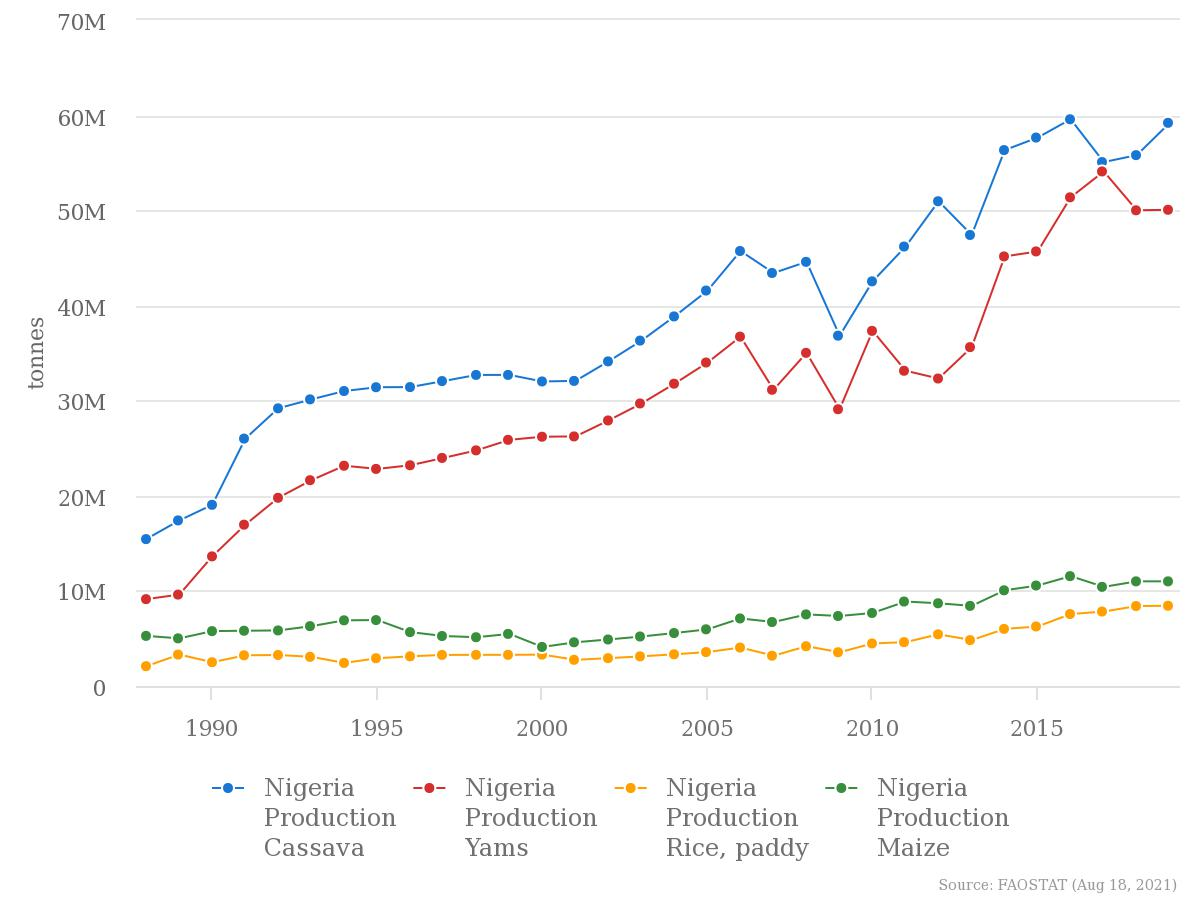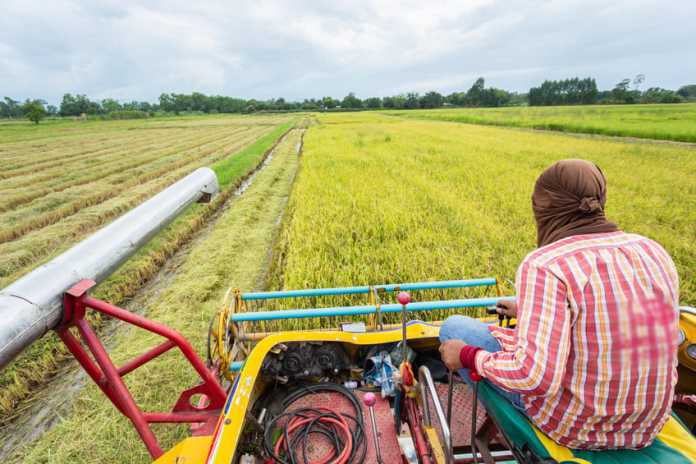A search of Google news today for the term “Climate Change” turns up a story from Africa News, claiming climate change is causing food insecurity in Nigeria. There may be growing food insecurity in Nigeria, but if so, it is due to political causes, not food shortages. Data from the U.N.’s Food and Agriculture Organization (FAO) clearly demonstrate Nigeria’s food production has increased dramatically during the recent period of modest warming.
A story in Africa News titled “Nigeria commemorates humanitarians and alerts citizens to the alarming effects of climate change,” suggests extreme weather related events in West and Central Africa are causing food shortages in Nigeria.
“The impact of climate change has significantly increased in West and Central Africa over the past 10 years with geographic concentrations in north-east Nigeria,” writes Africa News. “Here, people struggle to access to food and suffer from climatic shocks that are negatively affecting food crops, driving up food prices. The economic decline has drastically reduced the buying power of communities to secure even the basics.”
Like many countries on the African continent, economic growth swings wildly from year to year, with no apparent connection to climate change.
Since 1988, when NASA scientist James Hansen first testified dangerous human caused climate change was happening, World Bank data show, not including the 2020 pandemic year, Nigeria has suffered negative economic growth four times in the past 33 years, compared to 29 years of often substantial growth. Nigeria has experienced positive growth, exceeding 6 percent annually 13 times. The U.N. says the first two decades of the 21st century have been the hottest on record. Nigeria’s annual GDP growth rate exceeded five percent 14 of the first 19 years of the 21st century, and only experienced a single year of negative growth (-1.6 percent in 2016).
During the last 20 years of substantial, mostly sustained economic growth, crop production has also increased dramatically. Cassava, yam, maize, and rice are four of the top food crops grown in Nigeria. Since 1988, Nigerian crop production has been tracked by the United Nations Food and Agriculture Organization (FAO). FAO data show:
- Production of cassava, Nigeria’s top food crop, increased by more than 283 percent.
- Production of yams increased by more than 448 percent.
- Maize production grew by more than 108 percent.
- Rice production grew by more than 305 percent. (See the figure)

The evidence is clear that climate change has not harmed either crop production or economic growth in Nigeria. As a result, if Africa News is correct, that food prices are rising and average Nigerians are increasingly unable to purchase basic food stuffs, it must look elsewhere than climate change induced food shortages or economic decline. A good place to start might be government policies causing inflation.

















